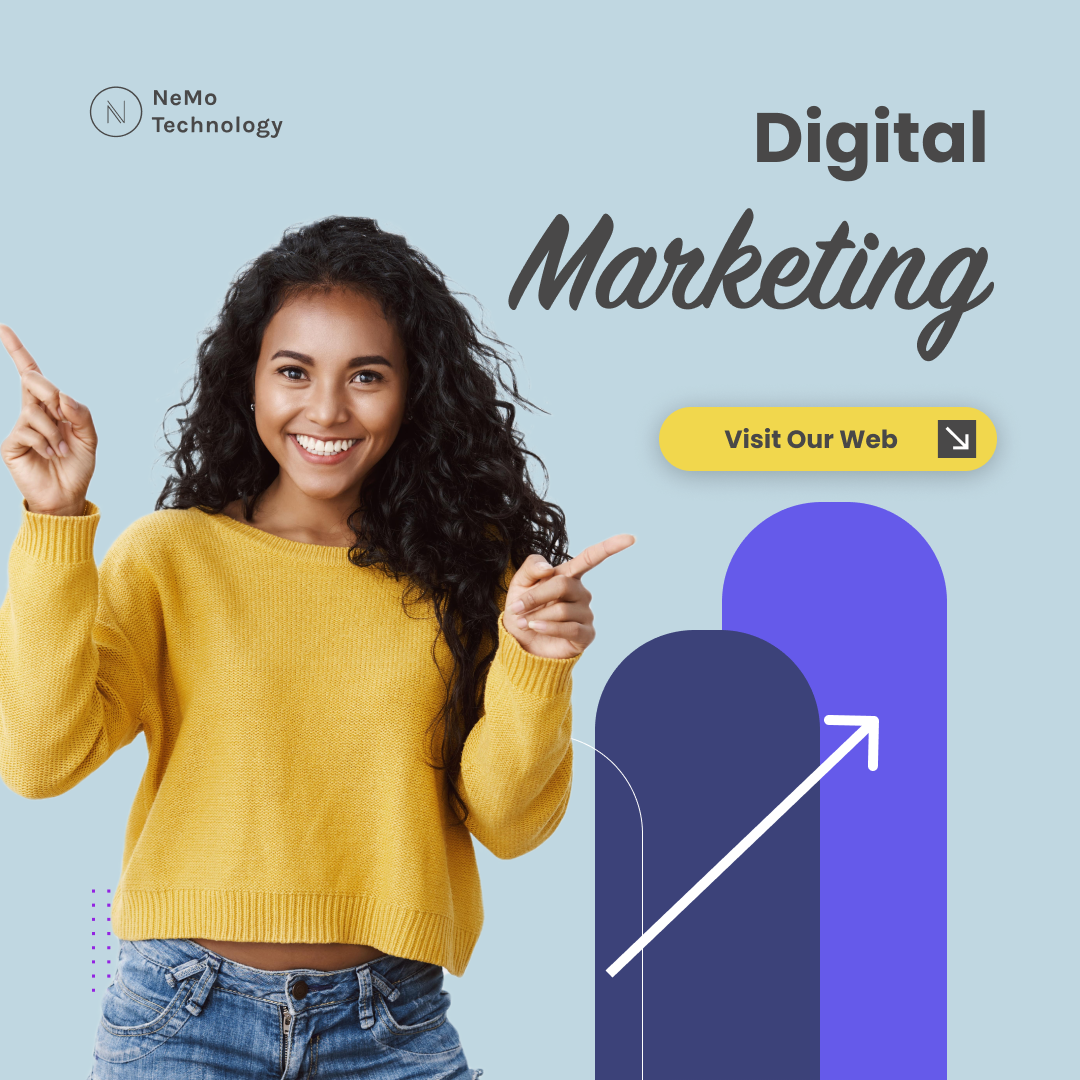Digital Marketing
Digital marketing is a constantly evolving field that encompasses a broad range of strategies and tactics aimed at promoting products or services through digital channels. As more consumers spend time online, digital marketing has become an essential component of any business’s marketing strategy. We will explore the various aspects of digital marketing and how they can be used to drive business growth.

Pay-Per-Click Advertising (PPC)
Pay-per-click advertising is a model of digital advertising in which advertisers pay each time a user clicks on their ad. PPC advertising is typically used to drive traffic to a website or landing page, promote a product or service, or generate leads. Popular PPC advertising platforms include Google Ads, Bing Ads, Youtube Ads and Facebook Ads.
Social Media Marketing (SMM)
Social media marketing involves using social media platforms to promote a business’s products or services. Social media platforms offer a range of advertising options, including sponsored posts, promoted tweets, and sponsored stories. Social media marketing is an effective way to reach a large audience and build brand awareness.
Email Marketing
Email marketing involves sending promotional emails to a list of subscribers. Email marketing can be used to promote products or services, share news and updates, or provide exclusive offers to subscribers. Email marketing involves building a targeted email list, creating engaging content, and using automation to send timely, personalized emails.
Content Marketing
Content marketing involves creating and sharing valuable, relevant, and consistent content to attract and retain a clearly defined audience. Content marketing can take many forms, including blog posts, videos, podcasts, infographics, and social media posts. The goal of content marketing is to build trust with an audience and position a business as an authority in its industry.
Search Engine Optimization (SEO)
Search engine optimization is the process of optimizing a website’s content and structure to rank higher in search engine results pages (SERPs). The goal of SEO is to improve visibility and organic traffic to a website. SEO involves a combination of on-page and off-page optimization techniques, including keyword research, content creation, link building, and technical optimization.
Influencer Marketing
Influencer marketing involves partnering with individuals or organizations with a large social media following to promote a product or service. Influencer marketing is particularly effective for reaching a younger audience and building brand awareness. Influencer marketing can take many forms, including sponsored content, product reviews, and giveaways.
Marketing Automation
Marketing automation involves using software to automate repetitive marketing tasks, such as email campaigns, social media posts, and lead nurturing. Marketing automation can help businesses save time and resources while delivering a personalized experience to their audience. Popular marketing automation platforms include HubSpot, Marketo, and Pardot.
Analytics and Reporting
Analytics and reporting are essential components of any digital marketing campaign. Analytics tools provide insights into website traffic, audience demographics, and user behavior. Reporting allows businesses to measure the effectiveness of their marketing efforts and make data-driven decisions. Popular analytics and reporting tools include Google Analytics, Adobe Analytics, and Hootsuite Insights.
Digital marketing is a complex and constantly evolving field that requires a deep understanding of the latest trends and technologies. By leveraging a combination of SEO, PPC, social media marketing, email marketing, content marketing, influencer marketing, marketing automation, and analytics, businesses can reach a large audience, build brand awareness, and drive business growth. Effective digital marketing requires a comprehensive strategy that aligns with business objectives and delivers measurable results.